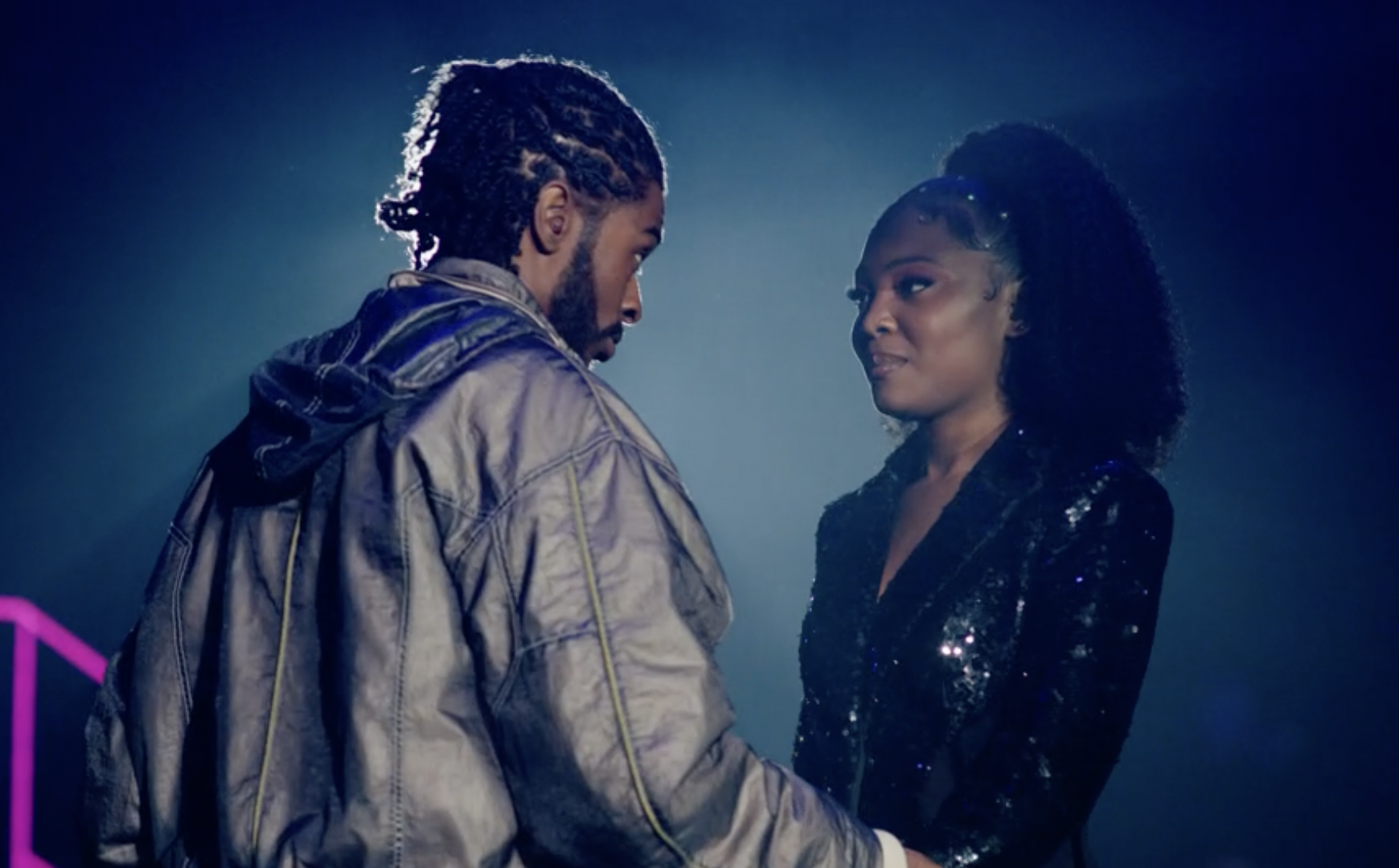Let’s acknowledge this up front. I can’t think of another TV series that looks or sounds like Champion. You might hear someone kickin’ a 16 on Top Boy. Feel the instant island warmth of likkle patois in the dialogue of a Small Axe special. Or find Mood and appreciate how financial insecurity and fear of failure are tightly bound up for aspiring musicians, and how race and gender influence their chances of success.
But to take us into the heart of Lewisham borough (my home) and examine sibling rivalry in the music business over eight episodes through the lens of a fragmented British Caribbean family feels fresh, immersive and long overdue.
The tracks we hear were created especially for this Netflix/BBC series, A&R’ed by showrunner and writer Candice Carty-Williams and industry veteran Hattie Collins, with Catford OG and co-star Ray BLK also serving as a music executive alongside Ghetts. Shola Ama and Debbie have been penning songs as well. (Props to music supervisor Cat Grieves too.)
As cast member Karl Collins says, this music isn’t background to the scenes, it is integral to the drama as it unfolds. How about Bosco Champion’s (Malcolm Kamulete) LIVE clash/rap battle with rival Bulla (Corey Weekes), recording his comeback track in a Birmingham bedroom – his “offloading” had me tingling – or the electrifying scenes in Jamaica?
There is also care in how these characters are introduced and tested. We see that right from the opening scene as Bosco has a panic attack before his return to the stage after a stint in prison. How often do we get to see the veil lifted on artists, either documented or portrayed on TV, to reveal their vulnerability or fragility? Particularly men…
Carty-Williams has skin in the music game. She used to work at Pop Justice, was a Channel U obsessive, has interviewed Adele among many others, and can draw on the fraught experiences of countless friends and acquaintances in the industry.
Ray BLK is probably one of them. The hugely talented winner of the BBC Sound of 2017 should probably be an international superstar by now. (Just watch her harmonise as she fixes her make-up in episode one.) Her character Honey hustles for chances and gets messed around time and again, even by bestie Vita who uses their song to get her break.
“What I love [about Champion] is that it really does show the realities of being in the music industry,” she told the Evening Standard. “You want to believe that talent should be it. But not everybody gets it: it’s not a level playing field. I think a lot of people will feel attached to her [Honey’s] journey, because we’ve all been the underdog before.”
The one person who keeps Bosco on an even keel, while writing his hits, is PA and obedient sister Vita (Lewisham Youth Theatre graduate Déja J Bowens), who longs to strike out on her own. Even after she gets her big break, we see father Beres (Ray Fearon) prioritising the career of his son and cash cow over the dreams of Vita.
And Bosco, under the dominant influence of his Champion brand-obsessed father, is in no rush to offer Vita his blessing or encouragement. But quick to ask her to fetch him a tea or supply his next banger. Vita has been in his shadow for too long, put second as that early clip of them scuffling to So Solid Crew’s ‘21 Seconds’ illustrates.
Beres is easy to dislike. All ego and selfishness with a dollop of manipulative charm as he struts around even the home that’s no longer his. Always quick to call the shots and rage if he doesn’t get what he wants. Beres is more interested in his vanity project of a radio station and sham of a record label than the welfare of his own children. He lives by the sacred (and mildly toxic) example of his father, which begins to haunt him as the show reaches its climax.
Viewers are drawn into not only his relationships with his children, but also the flickering flame of his connection to ex-wife Aria (a consistently brilliant Nadine Marshall). Once a promising artist herself and now languishing in the family restaurant after motherhood. I can still hear Aria berating that policeman, yelling “Don’t press up on me” in episode one’s explosive birthday party scene, which was improvised.
Anyone who’s read Queenie will know that Carty-Williams writes snappy dialogue you could easily eavesdrop on around South london, but a TV series is a slightly different proposition. Not least because it involves dozens of people scrutinising every line, as she told The Face.
Thankfully, the author and showrunner managed to bring the same authenticity, nuance and urgency to the Champion script (while also working on a Queenie adaptation, by the way 😮💨). That’s what makes the exchanges so engrossing, and the complex dynamic between characters always compelling.
There is conflict everywhere, which is by design as the writer explained to Televisual. “When we were doing the writers’ room – which included Isis Davis (Killing Eve), Edem Wornoo, Emma Dennis-Edwards (Consent) and Ameir Brown (A Thousand Blows) – there was one point in the final week where I said we needed to keep a score system. That was the way I made sure every character had their fights and everyone had their wins, and their losses.”
For instance, how does Aria’s experience in the music industry, and the vestiges of a patriarchal society, impact her attitude to the futures of her children? An intriguing sub-plot in the series is her relationship with Lennox (Karl Collins), a dependable partner and surrogate father who feels the cold shoulder once too often. It seems Aria is unable to express what she wants or needs. Is that because she’s rarely been asked?
Carty-Williams is interested in the genesis and evolution of things, from attitudes and expectations to music and other aspects of culture. Her powers of observation and inquisition – asking how did we get here? – have made Champion expansive and resonant in myriad ways.
Complicating Vita’s life with her attraction to Memet (Kerim Hassan), Bosco’s childhood friend and DJ, while she begins a smothering relationship with producer Laurent (Francis Lovehall) further heightens the tension in this tangled web of characters. The shooting star struggles to exert control in her new life and Bowens deploys an array of facial expressions to convey her character’s swings between elation and dismay.
We do get a few pantomime villains like slimy record boss Phil (Fergus Rees) but even guys like buzz-obsessed manager Mark (Tom Forbes) – who is engaged to Bosco’s ex Chantelle (Adeyinka Akinrinade) and self-appointed stepfather to their daughter Milan (Olivia-Rose Colliard) – become more than one-dimensional in Carty-Williams’s hands. There are levels to his deviousness. And am I the only one who felt for him a little bit in episode seven?
In the case of Bosco’s manager Dawn (Jo Martin), whose concerns about Bosco are batted away by Beres, the writing helps us to distinguish between her competency and capacity to care. “A lot of it has been trying to make fictional the things that I knew existed, while also making them real,” Carty-Williams told the Guardian. “It’s like a parallel universe.”
So, you get label executives seriously suggesting Bosco develops his brand as a recently released convict by filming his next video in prison. Mark insisting Vita’s first track is called ‘Dancing In My Underwear’, because that’s what young girls do, right? And yes, unfortunately, police harassment persists in this universe. But so does Black British talent rising up and breaking through on their own terms. If not fully conquering their demons then at least turning their pain into art.
The casting feels fated in Champion, particularly the leads. Kamulete not only MCs like his life depends on it, but he’s also able to reflect the fragile mental state and trauma that threatens to destroy Bosco as Beres and others pile on the pressure. After hearing Chantelle and Milan might be off to New York, his behaviour becomes more erratic and a downward spiral becomes freefall. Is history about to repeat itself for the son of an absent father? To Kamulete’s credit, we can sympathise with his character despite Bosco’s flaws.
Bowens, meanwhile, captures the naivety, hunger and ambition of his sister so well because she was able to find the Vita in her. “A lot of what happens to her in the story has actually happened to me in my own personal life,” Bowens has said. “A lot of things are similar and mirror each other, such as the fact that we are from the same area in real life.
“I have always sung in church, as part of a choir, but I was never seen as good enough to be the lead or soloist. I have always been ok with being the background vocalist. The fact that I knew this role was going to be a singing role was very nerve-wracking for me, but I just felt such a connection to this story.”
Attention to detail is laser-like, which draws us deeper into this world, from the art direction of Aria’s 90’s music video to the carnival of colour in the Champion home. In the way Bosco holds his mic and the audible empathy in the hook for ‘Shade of Blue’, which Ray BLK wrote for Vita: “But I know I’m a star, I’m just lost in the galaxy. Like a moon in the afternoon, can you even see me?”
Champion is easy to get caught up in, whether you live in South London or not (most of the show was filmed in Birmingham 🤫), whether you have ever aspired to make it in music or not, whether you’re black or not. And that is down to the heart, self-belief and dedication of Carty-Williams and the whole team. This is how you seize the moment. Credit to the commissioners for showing faith. Now can we get more series that live and breathe the culture they claim to portray?
The first series ends on a major cliffhanger – and a shocking betrayal – so it’s safe to expect a follow-up.
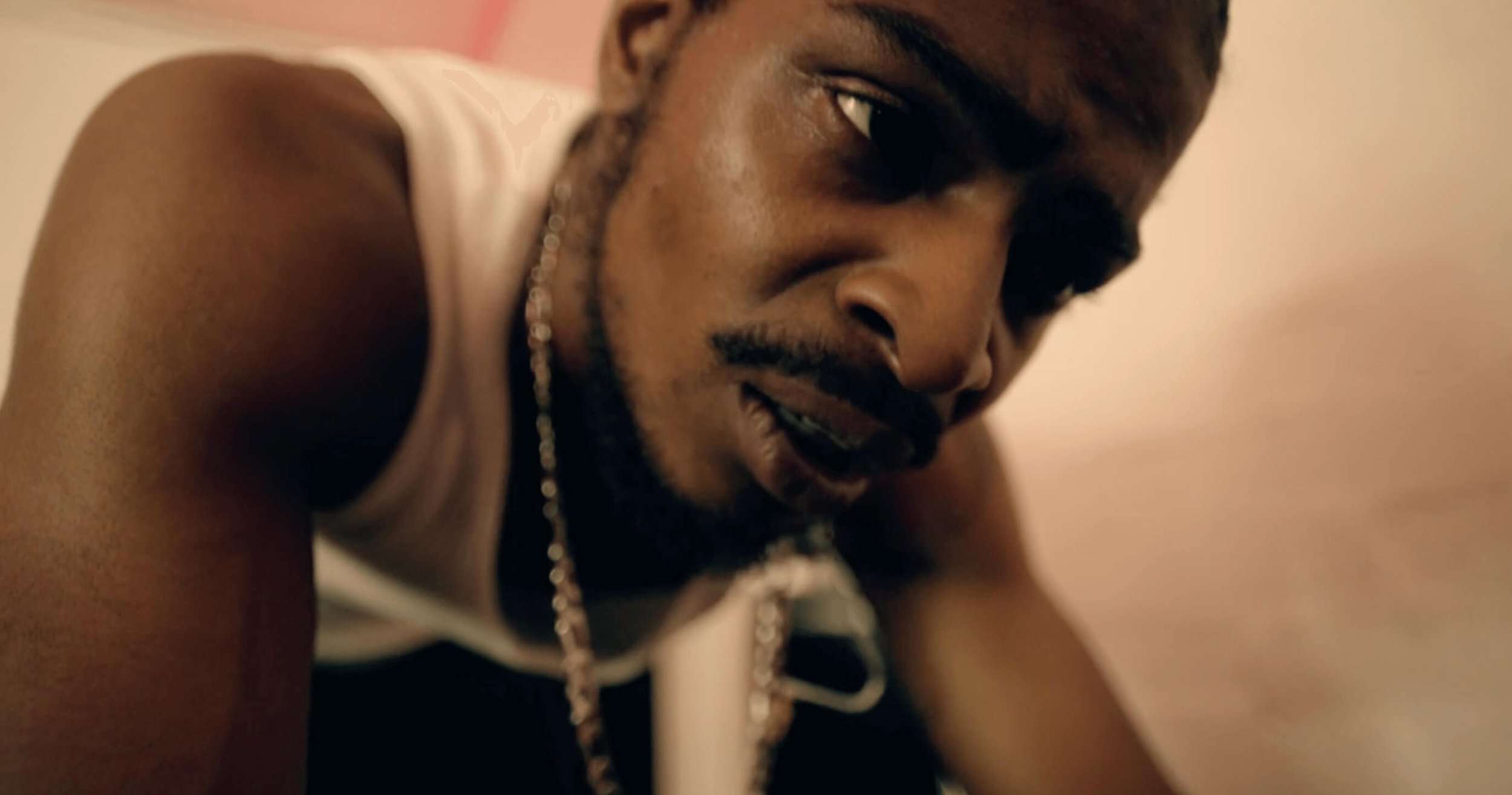
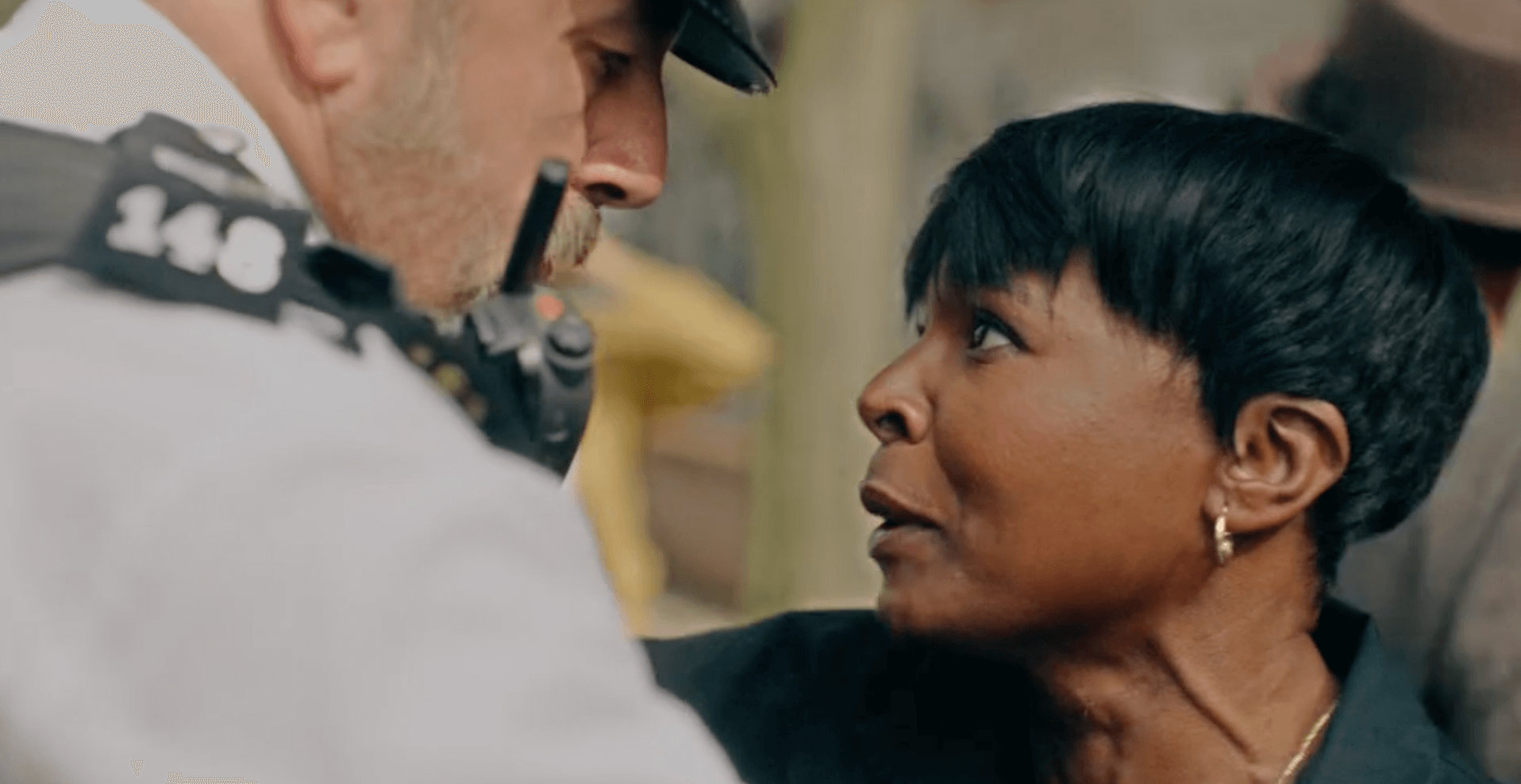
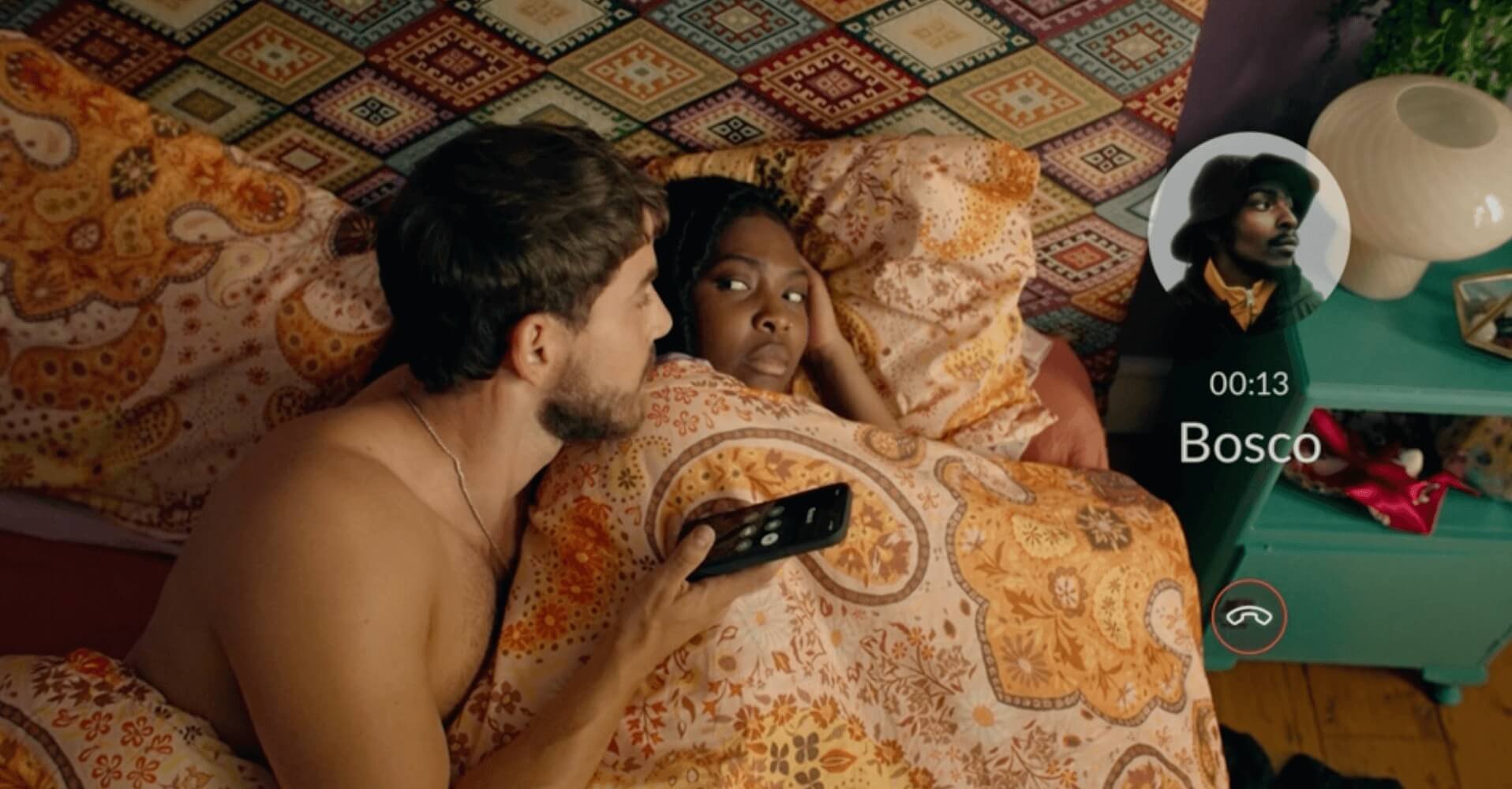
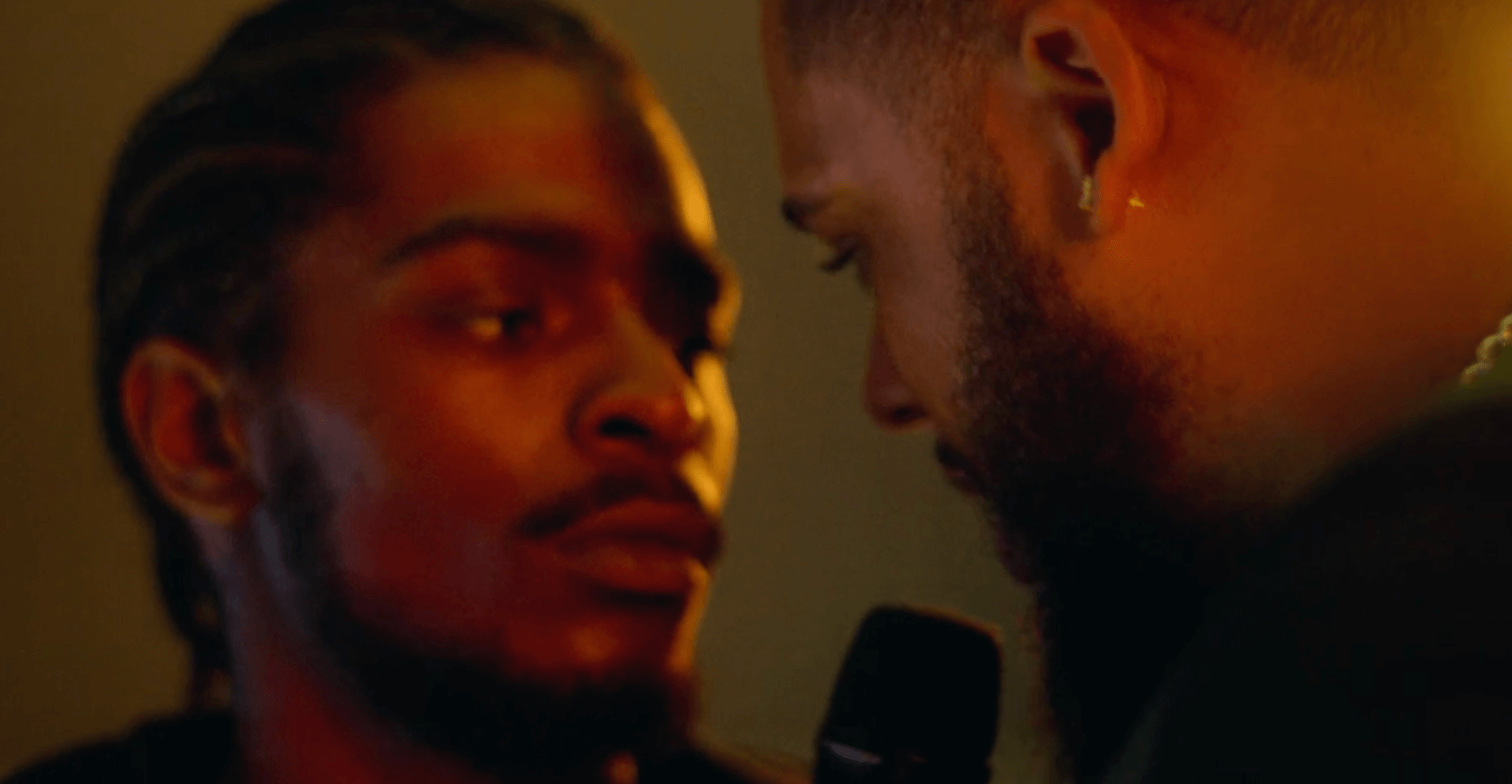
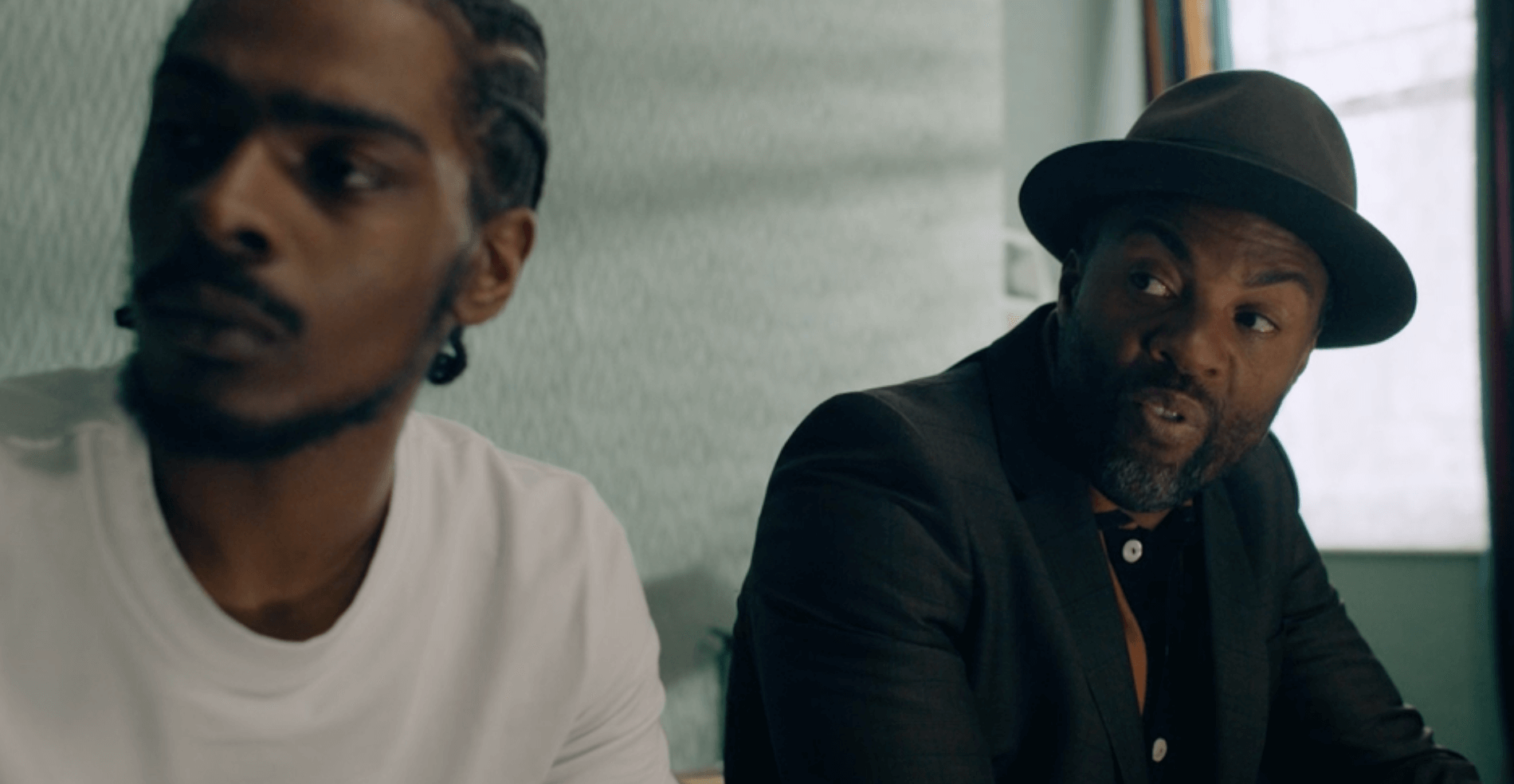
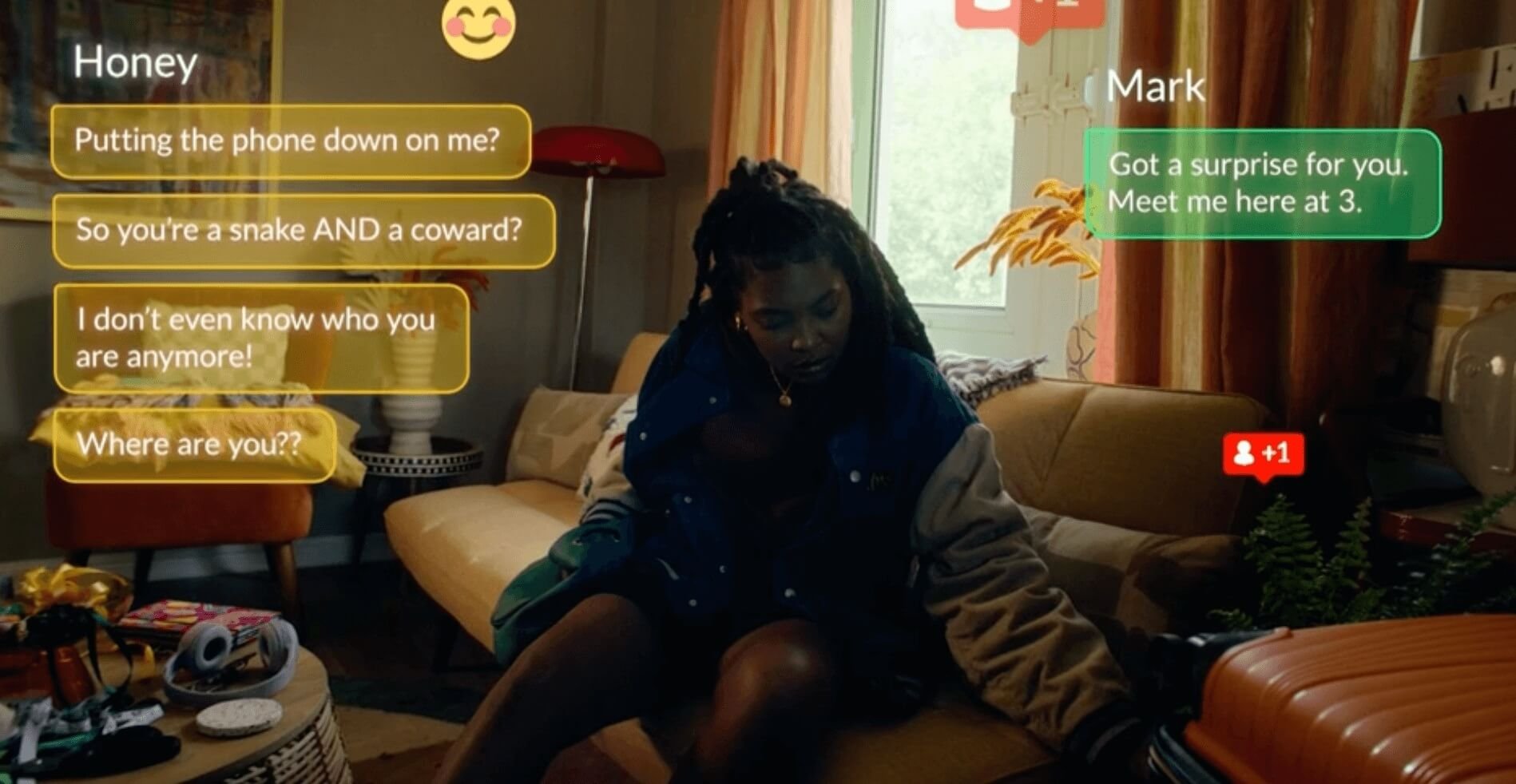
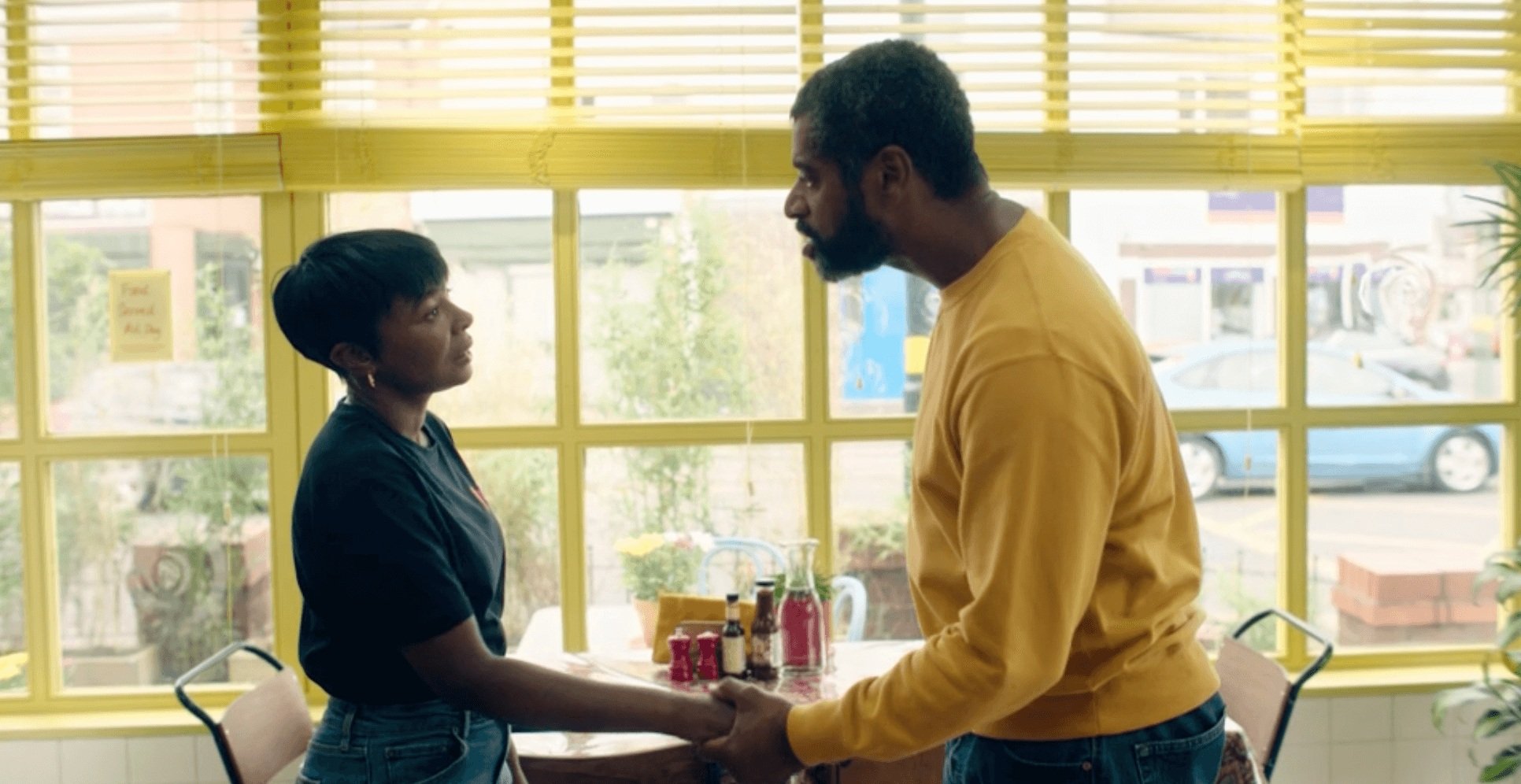



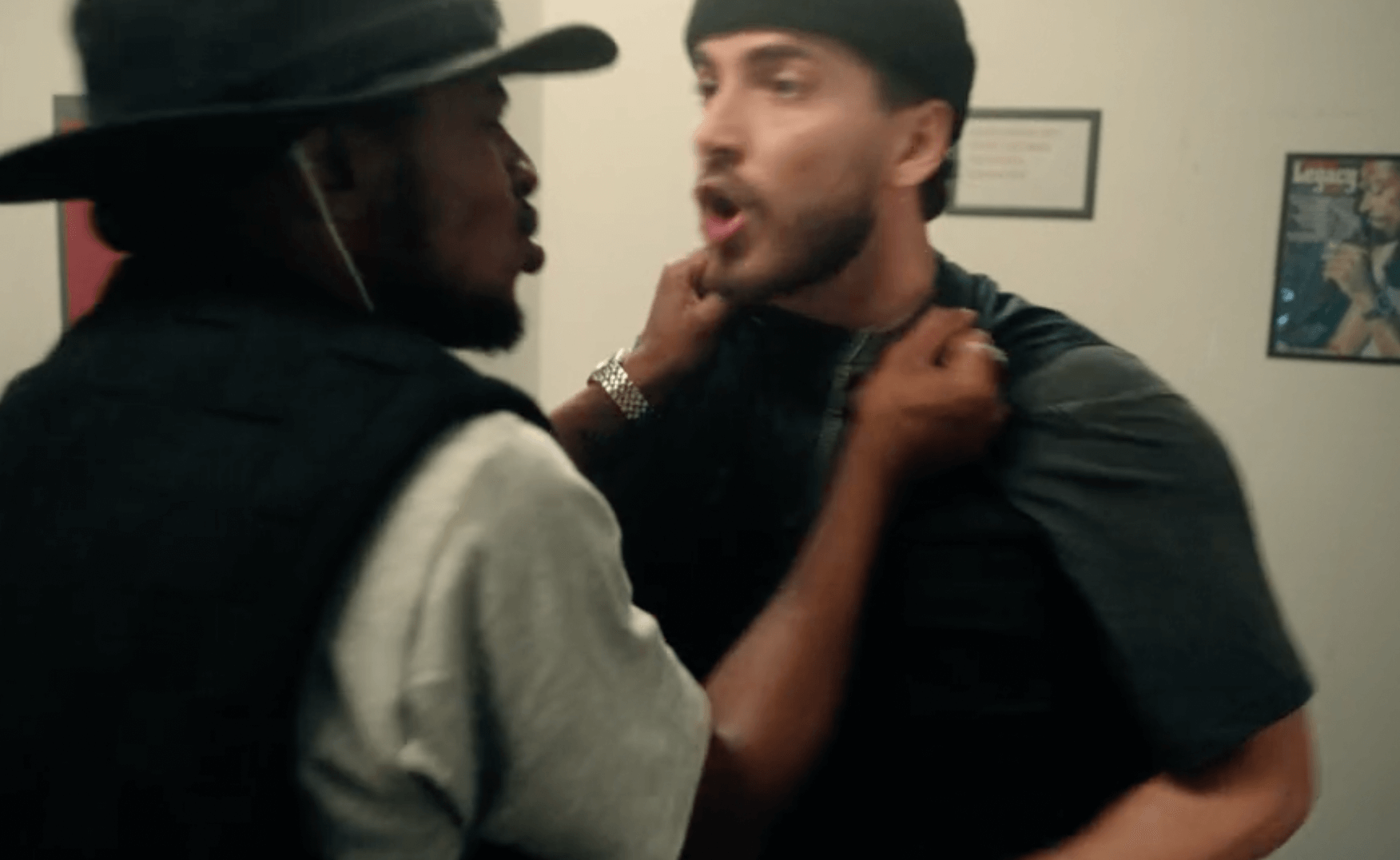
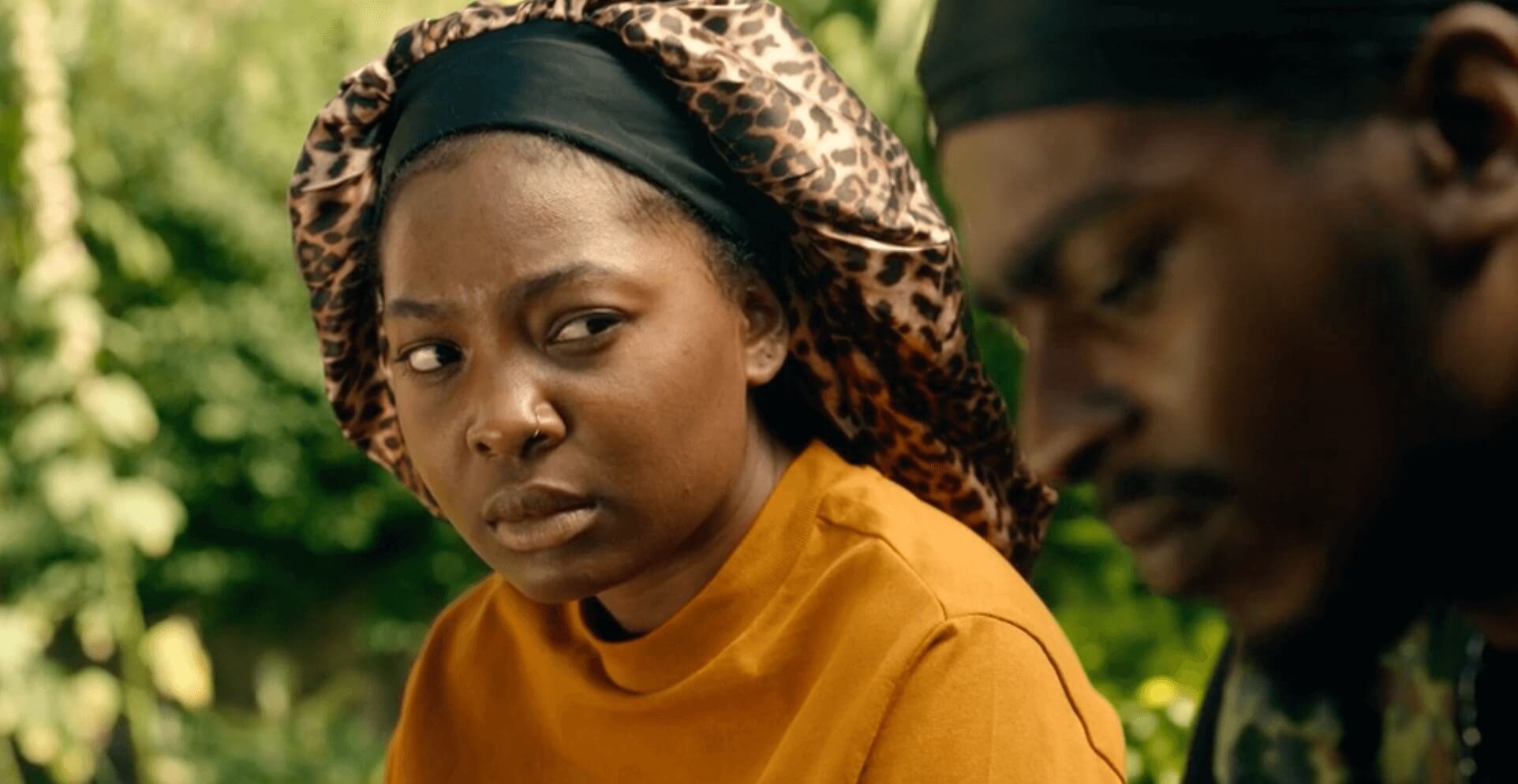
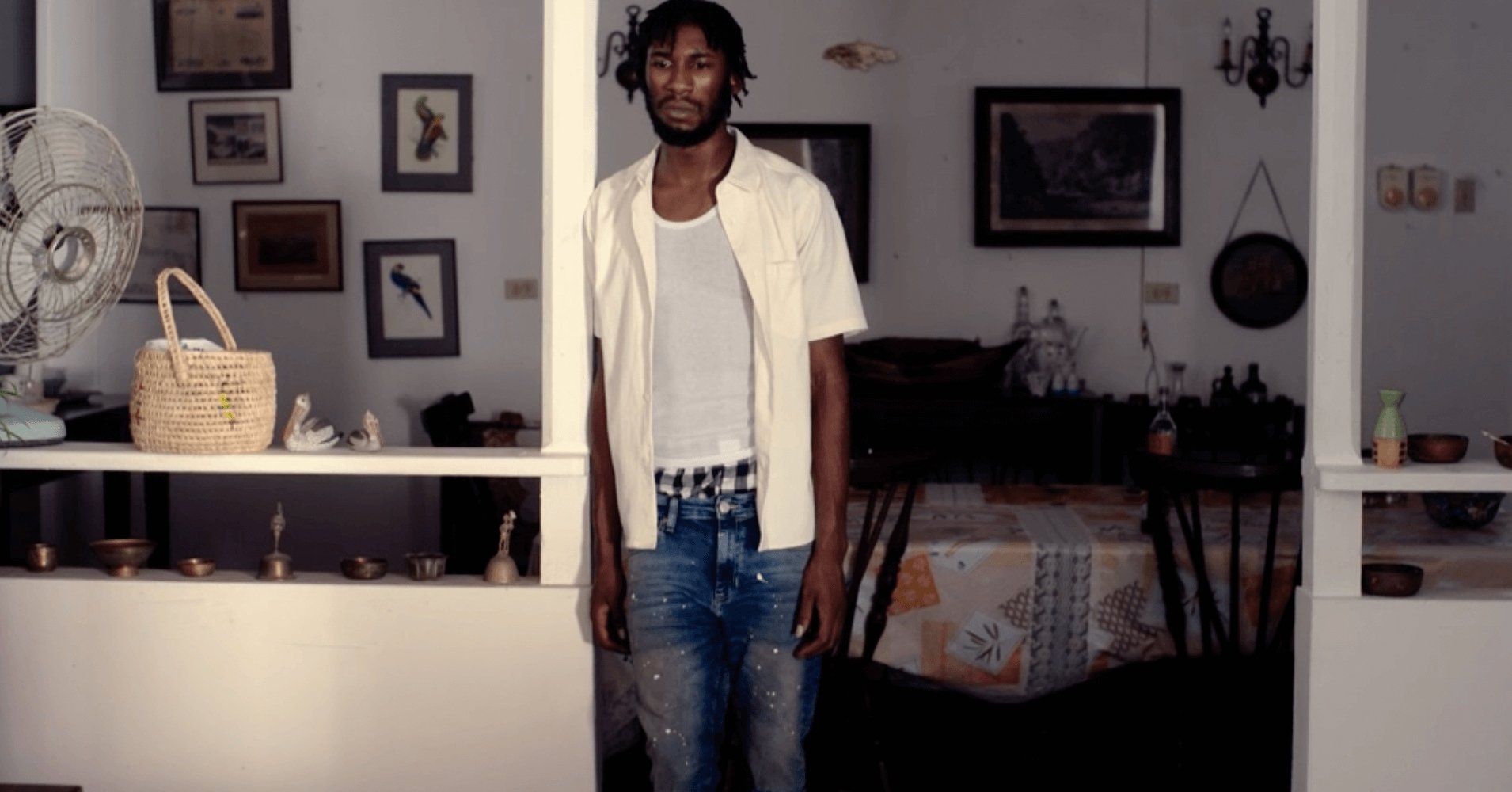

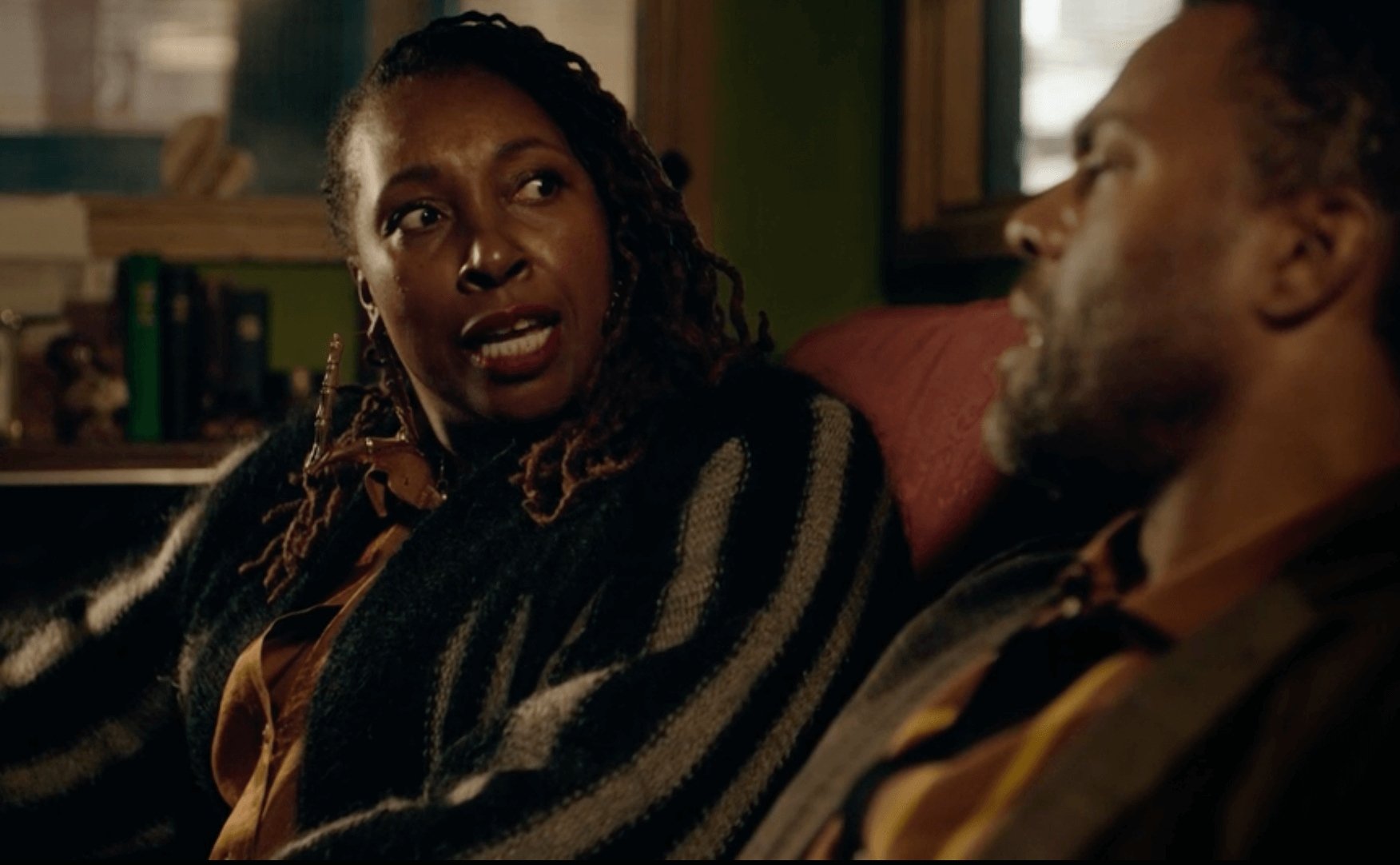

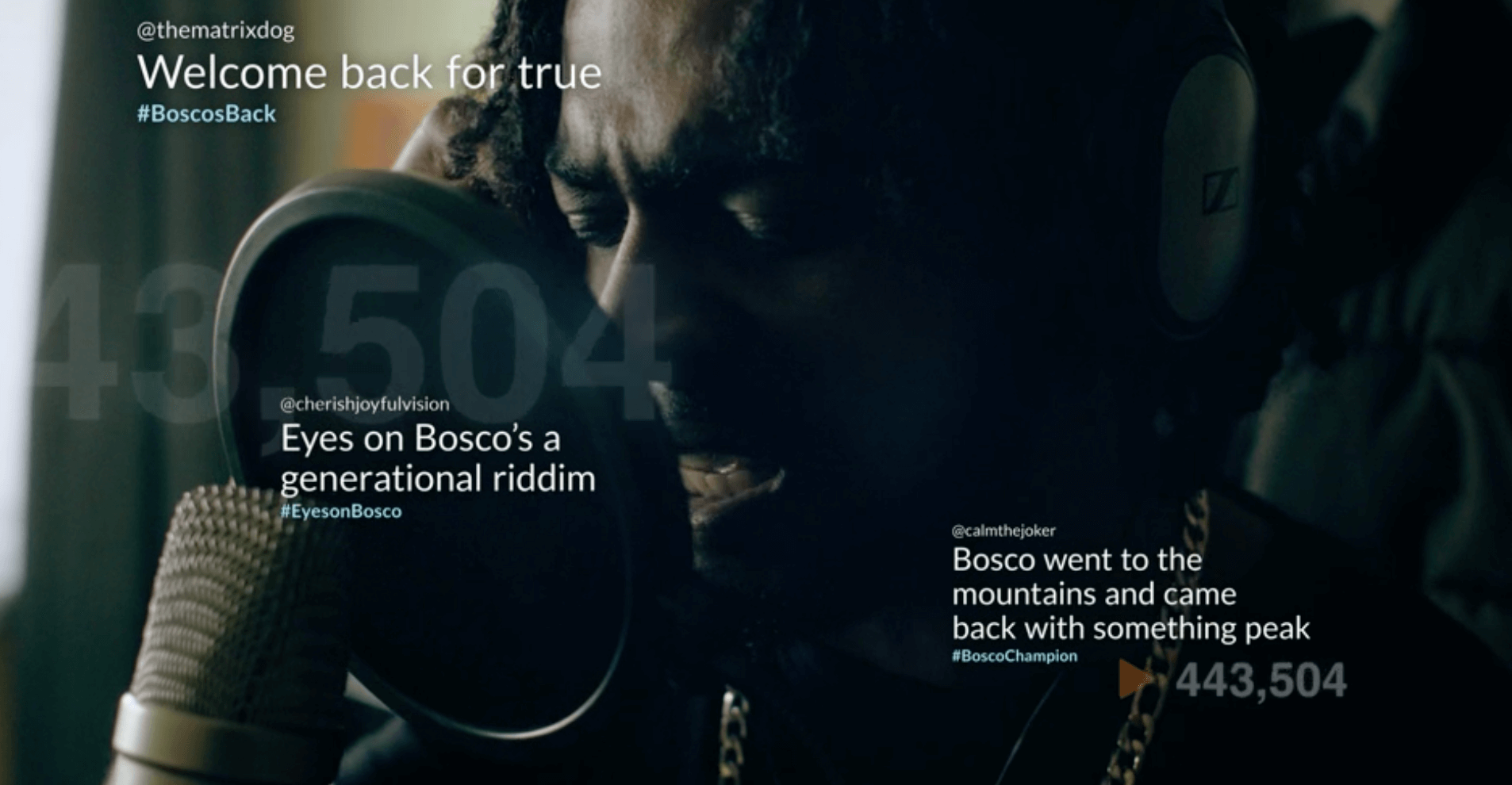
Champion is available on BBC iPlayer and Netflix internationally (release date tbc).
Test the sound: The soundtrack is finally available. You might listen to Champion before you watch it and that’s ok. It’s all one world.
This TV Soundtracks special showcases the musical DNA of the show, which goes much deeper than grime, rap or R&B. These books by Jeffrey Boakye and Lloyd Bradley are worth a look if you are interested in the history of Black British music.
Final thought: I love the fact that one of Carty-Williams’ greatest musical heroes and inspirations is Freddie Mercury who sang … ‘We Are The Champions’. It was all meant to be.

